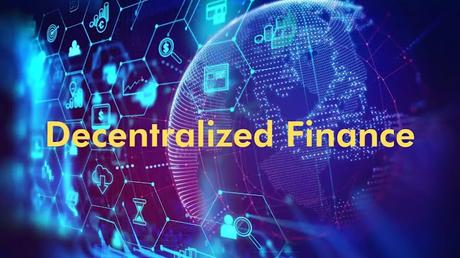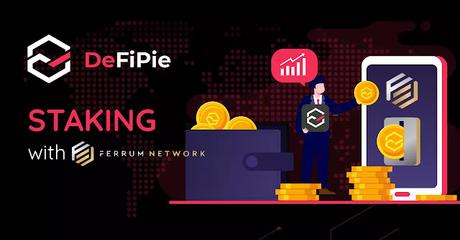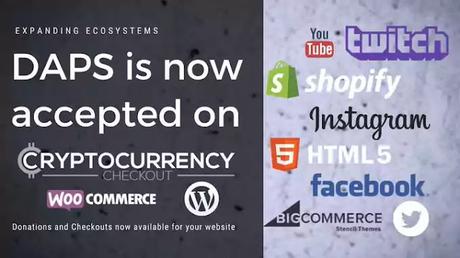Hello, everyone. Welcome to comprehensive mind. So in today's article, I am going to speak about five business and job opportunities that are going to shape this decade. If as a student or a young professional, or even as an experienced professional, you understand the power behind these five business and job ideas that I'll speak about in today's article, it can prove to be a game-changer for you. So from that perspective, please read this article very carefully. There are five specific business and job opportunities that I would like to discuss with you.

What is Web 1.0, Web 2.0, and Web 3.0
But first, let me provide some background so that you may better understand these trends. So, first and foremost, we must grasp the distinction between Web 1.0, Web 2.0, and Web 3.0, since the five concepts I'll be discussing are all Web 3.0-based. So, let's take a look at the Internet's history. And the Internet's original version was quite primitive. It was merely attempting to transform physical books into digital books.
For example, I love reading these types of physical books. I read it all the time. And the simplest form of the Internet, which was Internet 1.0 it simply put these types of books onto the Internet, and these were static Internet pages. That's it.
Then we moved on to Web 2.0 and on Web 2.0, some really interesting things played out. For example, there were big companies, big tech monopolies. They started hogging the Internet in a way. For example, when you went and opened your account on Facebook, Facebook had entire control of that particular universe.
For example, you will sign up by using your data on Facebook. Facebook will collect that data. They will share this information with marketers, who will continue to bombard you with bizarre advertisements. As a result, you had no control over your data as a user.
Big tech businesses, on the other hand, have practically constructed monopolies by stealing your data. So, in a nutshell, this situation may be regarded as a problem of centralization because certain extremely large firms, such as Facebook, Amazon, and Google was involved.
They grew to be extremely powerful, monopolizing the market and establishing themselves as the dominant force. As a result, there was an excessive amount of centralization.
Then comes the savior, which is Web 30. So in Web 30, it's a very elaborate concept. But in simple words, Web 3.0 gives a lot of autonomy to users.
In Web 3.0, you control your own data. You have a lot of autonomy and you decide whether you want to give your data or not. And by using browsers like Brave browsers these days instead of Safari and Google Chrome, if you use Brave browser, then you can check Mark that okay, I would like to see ads and you get paid to see those ads.
So this is the functionality of Web 3.0. A lot of decentralization is happening in the way the Internet is run. So with this dynamic change, there is a range of opportunities that are opening up, and it's very important for us to understand what kind of businesses and jobs we can get in this new economy.
Creator economy jobs

pic credit: Axios
So the first key job that is coming up in this new economy is called creator economy jobs. For a lack of a better word, I have termed it as creative economy jobs. But you need to understand the principle. Now, one of the key problems that are being faced in the creator economy is that there are a lot of commissions at play.
So let's assume that you are an author. Now, in order to publish your book, you will work really hard. Then you will go to a publishing house. You will keep on sending your scripts and a bunch of different things. And finally, if your script gets approval, then the book gets published and it gets sold to people.
But at the back end, what happens is that the publishing house keeps 80% of the commissions and the author only ends up getting 20% of the commissions. But if you strip all this away, what are the simple dynamics that an author?
Let's assume I want to deliver my book to you and you love reading my work. Then I could potentially cut out the middleman and all of us benefit. For example, I can pass on the cost benefits for you. So instead of selling my book for $10, I will just sell it at $6 and pass on most of the benefits to you. So it's a win-win for both the creator and the audiences. So now these Commission problems play out in any kind of creative field or an artistic field.
For example, let's assume that you're a musician, the same thing that you have to go to a record label. You have to pay them almost 80, 90% royalty. You as a singer or a composer will get a very little amount. So that again becomes a problem.
So what is the solution that is coming up and how you can benefit from it? So the solution is these days creators are on Instagram, on Facebook, on YouTube, on Twitter, and a bunch of different things. These days creators have a distribution that is already built. For example, I as a content creator, I'm directly reaching out to you via Blogging. So this distribution is already there.
And what Web 3.0 allows us to do is that it allows us to create NFTs. Now NFTs have two direct advantages. Now, the first direct advantage is that the supporters can directly support creators if they buy NFTs.
For example, let's say that I'm coming up with my book. So my book will be released sometime this year. So let's say that I'm releasing my book and I, along with the book, have an option of selling an NFT. So I sell a book. I sell an NFT.
Now, what is the utility of this that you will consume? You will buy my book, have a good time reading it, hopefully. And then what can you do with the NFT? So let's say that you really like my book and you want to have a conversation with me.
So what you can do is that if you have purchased this NFT, then one of the rewards can get unlocked. For example, it could be one on one Zoom call. It could be a live meeting. It could be an invitation to participate in a group meeting. All these functionalities can be built around an NFT.
So this is the power. And this is the game that can come out in the creator economy, which leads us to what kind of business you can build here. So predominantly, there is numerous set of businesses that you can build.
But two major types that I see building out is that you can become a firm that can help create us. Launch NFTs. For example, if I'm trying to launch my NFT, you can literally create a firm and just Ping me that hey Ethan you know what? We loved your articles. We would like to help you launch your NFT. Here is how you approach us so that can be a solid business.
The second key business that you can do is that you can create a firm that specializes in marketing NFTs because the way the marketing is done for NFT, it is very different. So in case you're not into programming, technical and hard skills, you can build a company that helps creators in terms of marketing their NFTs.
So these are the two major types of businesses that you can experiment with in terms of creator economy. Now NFTs are of multiple types and the type of jobs that you can get in the NFTs Space again, they can be 100 different types.
For example, there is a job as a solidity developer for NFT games. And if you go and apply for these types of jobs these days, people are making an annual salary of 40k to 50k easily in blockchain development.
DeFi based AMCs or hedge funds

pic credit: Forkast
So the second business that I'm super excited about in the Web 3.0 space is DeFi based AMCs or hedge funds. So just a very quick run-up as to what AMCs or hedge funds do. So hedge funds deal with HNI. So high net worth individuals and AMCs mostly deals with retail investors.
So you and I, for example, when we get our monthly salary, we go and give it to HDFC AMC. And the fund manager there will say, okay, thank you for giving me $1000, then goes and buys a bunch of stocks on your behalf, and in the middle, he or she will take commissions now. Same as the model with hedge funds.
Also, the only difference is that hedge funds usually tend to deal with high net worth individuals. So both AMCs and hedge funds thrive on commissions. That is their bread and butter, and they really look to optimize commissions. It's not as if that they will pass on all the benefits to you because that is literally their bread and butter. Right?
If you're paying them $1000 and they are not charging any commissions from you, then they will not make any money in the process. Now, DeFi based AMCs businesses have the power to bring down this Commission by a lot.
Why do I say that? Because the transaction on the blockchains is getting easier and easier. We are getting more cost-effective with time. Please don't compare the current rates when I'm sending Bitcoin from my wallet account to my wallet.
I'm getting charged high commissions that are there on almost all the platforms right now because the blockchain or defi space is still getting more and more efficient with time. Just to give you an example from 2020 to mid, Ethereum is making a shift towards proof of sake.
Please don't worry about all these technical terms, but simply put, it is becoming more efficient and a majority of the Defi systems right now are Ethereum based.
If there is a successful upgrade of Ethereum, then the transaction costs are going to come down and this is not the end. With time, the transaction or flow of money will become so smooth on the device systems that the Commission will be reduced quite a lot.
And as a result, the fund managers who are experimenting with the default space will be able to offer their work at a very low Commission, and this essentially becomes a very potent business model. Now you'll ask, how do I build a business in this space, to be honest right now, there is no regulatory framework in terms of building a Defi-based AMC business.
But the bottom line is that this is going to be disruptive and someone is going to start a DeFI based AMC or a hedge fund business in your country also and grow it to scale. And that potentially becomes a unicorn idea. Of course, there are challenges associated with it that regulations might come.
A lot of systemic changes might happen, but keep an eye out for this pace. In case you are someone from a finance background, you are interested in the AMC space, understand its potential and try to create a business out of it.
Now you say this is like super complex pace. Can I get a job in this space? What do I need to do? So, number one, you must learn about decentralized finance. Plus, you must also become a content writer because a lot of AMC-based businesses and fintech-based businesses, they are trying to create their content curation strategy.
So you will keep on seeing jobs like these. And these become high-paying jobs also. And the best part is that you don't need any technical skills per se to execute these jobs. All you need is to develop your knowledge base about blockchain, cryptocurrencies, DeFi, and a bunch of this new Gen finance.
Integration apps

pic credit: Allerin
Now, the third type of business idea that will be built in the next coming few years is the integration apps. Now, what do I mean by integration apps? Let us try to understand the problem first by picking a very specific example.
So many of us work with major corporations. When we apply abroad, we have to send a letter of recommendation or if we are changing our job. Then again, that LOR is required by the majority of the employer wherever you are getting recruited.
What happens is that when you go and ask your boss that he was, I need a letter of recommendation. Can you please do that for me? The boss creates a lot of trucks, right? They will say that company policy is not this that and they will be a little bit fee in terms of issuing that letter for you. Technically, that letter should be issued for you because you've worked at that organization and you should be getting a detailed performance report.
Okay, add on to it the fact that your performance reports are not released easily by your existing organization. If, for example, let's say that you are moving from Microsoft to Google and you have had excellent performances at Microsoft.
How are you going to prove it to Google that you have had excellent performances by showing your performance report or feedbacks, but can you do it easily? The answer is no, it's not easy for you to do it because this data is centralized by different corporations and it's not easy for you to pull your own data and show it to different organizations that you are moving to.
This problem also exists in education or your medical records that some doctors will refuse to release your medical records to another hospital, though these are your records only. So this non-integration of your own data leads to a lot of problems for you and creates a lot of hassle. So this problem can be solved by creating something called DAPs decentralized applications.
Now let me give you one concrete example of an app that already exists. It is called as MetaMask and it is one of the most famous wallets that are out there. What MetaMask simply does is that this acts as a central repository of all the NFTs that you are buying. All the cryptos that you have, a bunch of other blockchain finance assets that you will be owning.
So this becomes like an integration app for your finance. This becomes like a wallet wherever you are going to the crypto world, this is the wallet that you carry. So it's a very simple idea. Similarly, similar ideas will be built out in the field of health care, in the field of employment, in the field of HR, and a bunch of other fields by using the concept of DAAPs. So if you're trying to start a business, you can literally build an integration-driven business by using this concept of DAAPs.
DeFi staking

pic credit: medium.com
Now comes the fourth and the most exciting idea for me, which is DeFi staking. Now, what is DeFi staking?
So in simple terms, you might have seen that if you open your account on vault, what happens is that you buy a Bitcoin and you do a fixed deposit and you're making 6.7% returns on your fixed deposit, then how is it that vault is making money through you from this process, they are paying you 6.7% return.
But what they do is that they do DeFi staking they will pick up the Bitcoin that you have given them because you have done an FD with vault, then they will go and stick it in certain defi protocol.
Now, explaining this process is highly complicated, so I don't know if you would want to know that, but in simple terms, what the vault is doing is that you are doing your fixed deposit with a vault at 6.7%. vault is doing its fixed deposit with someone else at 7.5% and they are keeping commissions.
So this is called as DeFi staking, and it's a complex process and as normal retail investors, it is very difficult for us to open up these taking nodes and do this DeFi staking on our own. There is a lot of risks involved. There is a lot of complexity involved, but with time this process will get simplified.
For example, Zerodha, when it started out, it simplified the entire concept of buying and selling stocks in India. Similarly, Robin Hood started very recently in the US. It simplified the concept of buying and selling stocks for retail investors.
Similarly, an idea where this defi taking becomes super easy to do for retail investors will gain a lot of traction. So this idea has massive, massive potential and you should definitely learn more about this space.
Shopify for dAAPs

pic credit: cryptocurrency checkout
The fifth and final idea that I would like to discuss in today's article is Shopify for DAAPs. Now what Shopify is if you know about the company, what it simply does is that it's a marketplace for entrepreneurs.
For example, if I'm running a very small business, then I would have to figure out everything right from how to market my business, how to build a website for it, how to automate sales, how to ensure lead generation, how to ensure operations, lot of different, different problems I might have as a small-time entrepreneur, so I simply go on Shopify and it acts like a mega mall for me where I can show and display my business and they solve all the problems for me.
And in return, they keep a certain Commission of the sales that I'm generating. Now, this model is brilliant. If you are creating any DAAPs, especially if you are a very small entrepreneur and you can't go and hire like ten blockchain developers, then a team of marketing people, then a team of content writing people so someone who can build out Shopify for DAAPs that idea can become really explosive.
Bottomline
So I hope that you learned a ton of stuff from this article. And just as a passing note that if you're looking to get jobs in this economy the Web 3.0 economy, then you must either develop your technical acumen because that is going to be very important.
So learn about solidity, learn about trust, and a bunch of other different programming languages. You can become a blockchain developer. If you're not interested in the tech space, then move towards the software elements like marketing, content writing.
These are all great opportunities and crypto firms and blockchain firms are paying an insane amount of money for you to get on that bandwagon.

